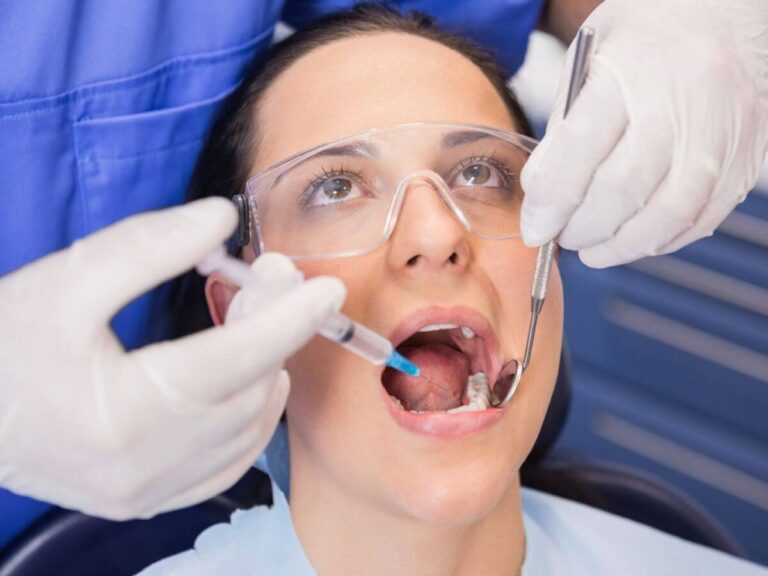When it comes to safeguarding your oral health, dental insurance is an essential component that shouldn’t be overlooked. Many people underestimate the importance of dental insurance, assuming that regular brushing and flossing are enough to maintain a healthy smile. However, dental insurance provides much-needed financial support for routine check-ups, cleanings, and unexpected procedures that can otherwise be costly.
Firstly, understanding your dental insurance plan is crucial. Most plans cover preventive care at 100%, which includes bi-annual cleanings and exams, key practices in preventing more serious issues down the line. Without these regular check-ups, small problems can escalate into major ones requiring expensive treatments like root canals or crowns.
Dental insurance often covers a significant portion of basic procedures such as fillings and extractions. This means you won’t have to bear the full brunt of costs if you require treatment beyond preventive care. For major procedures like bridges or dentures, while coverage might not be as comprehensive as basic care, having a policy in place still reduces out-of-pocket expenses significantly.
Another important aspect is the network of providers associated with your plan. Choosing an in-network dentist usually results in lower costs compared to out-of-network services because insurers negotiate reduced rates with their network providers.
By investing in a good plan now, you’re ensuring peace of mind for both routine maintenance and unforeseen needs, ultimately saving money while keeping your smile bright and healthy for years to come.
Medicare Dental Insurance Coverage
When navigating the world of dental insurance, it’s essential to understand how Medicare dental insurance coverage fits into the broader landscape. Unlike traditional health insurance, Medicare typically does not cover routine dental care such as cleanings, fillings, or dentures. However, there are specific circumstances under which Medicare may offer some level of dental coverage.
Medicare Part A (Hospital Insurance) might cover certain dental services if they are deemed necessary as part of a covered hospital stay. For example, if you require a complicated dental procedure that must be performed in a hospital setting due to an underlying health condition or emergency situation, Medicare may help cover these costs.
For more comprehensive coverage of routine and preventive dental care, many seniors opt for additional plans like Medicare Advantage (Part C) plans. These plans are offered by private insurers and often include extra benefits beyond what Original Medicare provides, such as vision and hearing services, alongside basic dental care.
It’s crucial to carefully review the specifics of any Medicare Advantage plan to ensure it meets your individual needs for dental coverage. Understanding these options can empower you to make informed decisions about your oral health care while managing overall healthcare expenses effectively.
Dental Insurance for Infants and Children
When it comes to dental insurance for infants and children, there are several important aspects that parents should be aware of to ensure their little ones receive the best oral care possible. Dental insurance can significantly ease financial burdens by covering routine check-ups, cleanings, and necessary treatments, which are crucial during the early years of a child’s development.
Firstly, it’s essential to understand that many family health insurance plans include pediatric dental coverage as part of their offerings. However, the extent of this coverage can vary widely between policies. Parents should carefully review their plan details to determine what specific dental services are covered for infants and children.
Preventive care is a critical component often included in pediatric dental insurance plans. This typically covers bi-annual check-ups and cleanings, fluoride treatments, and sealants, all vital procedures that help prevent cavities and other common childhood dental issues.
Some plans may offer coverage for more extensive procedures such as fillings or orthodontic evaluations if needed. It’s important to note any waiting periods or age restrictions associated with these benefits.
Parents should also be aware of network restrictions within their chosen plan. Selecting a dentist within the insurance network can help minimize out-of-pocket expenses while ensuring quality care from professionals familiar with handling young patients.
Understanding the nuances of dental insurance for infants and children is crucial for maintaining your child’s oral health without incurring unexpected costs. By thoroughly reviewing policy details and staying informed about available benefits, parents can make well-informed decisions that support their children’s long-term dental well-being.
Understanding PPO Dental Plan Benefits
When it comes to dental insurance, understanding the specifics of your plan is crucial for maximizing its benefits. One popular option is the PPO (Preferred Provider Organization) dental plan, which offers a blend of flexibility and cost savings. With a PPO plan, you have the freedom to choose any dentist you wish, but you’ll enjoy lower out-of-pocket costs when you select a dentist within the network.
PPO dental plans typically cover a significant portion of preventive care services such as routine check-ups and cleanings. This encourages regular visits to maintain oral health without incurring high expenses. Additionally, these plans often include coverage for basic procedures like fillings and extractions, as well as more extensive treatments such as crowns and root canals.
It’s important to understand that while PPO plans offer flexibility, they also come with certain limitations. For instance, there may be an annual maximum benefit limit and specific waiting periods for certain procedures. Being aware of these details can help you plan your dental care accordingly.
Understanding PPO dental plan benefits can lead to smarter decisions regarding your oral health care. By choosing in-network providers whenever possible and familiarizing yourself with your plan’s coverage details, you can ensure that you’re making the most of your dental insurance while keeping costs manageable.
How Care Credit Can Help You Pay for Dental Expenses
When it comes to managing dental expenses, understanding your dental insurance options is crucial. Dental insurance typically covers a portion of preventive care, such as cleanings and check-ups, and may also contribute to more extensive procedures like fillings or root canals. However, even with insurance, out-of-pocket costs can still be significant.
This is where Care Credit can play a pivotal role. Care Credit is a healthcare credit card designed specifically for medical expenses that aren’t covered by insurance. It allows you to spread out payments over time instead of paying the full amount upfront. This can be particularly beneficial for more expensive treatments or procedures that require immediate attention but might strain your budget.
By using Care Credit in conjunction with your dental insurance, you can effectively manage your finances while ensuring you receive the necessary dental care without delay. Always make sure to review the terms and conditions of both your insurance policy and any financing options like Care Credit to fully understand how they can work together for your benefit.
Is Oral Surgery Covered by Medical or Dental Insurance?
When it comes to understanding dental insurance, one of the most common questions is whether oral surgery is covered by medical or dental insurance. The answer can vary depending on several factors, including the type of procedure and the specifics of your insurance policy.
Oral surgery often falls into a gray area between medical and dental coverage. Generally, if the procedure is deemed medically necessary, such as surgeries related to facial injuries or conditions that impact overall health, it may be covered under your medical insurance. For example, procedures like jaw realignment or treatment for sleep apnea might qualify for medical coverage.
On the other hand, surgeries that are primarily related to dental health, such as tooth extractions or gum surgery, are typically covered by dental insurance plans. However, it’s crucial to review your policy details carefully since coverage can differ widely between providers and plans.
To avoid unexpected expenses, it’s advisable to consult with both your dentist and your insurance provider before scheduling any oral surgery. They can provide clarity on what portion of the costs will be covered by each type of insurance and help you understand any out-of-pocket expenses you may incur.
Conclusion
At Sun City Dental in El Paso, TX, we accept most dental insurance plans. We will work with your provider and fill out all the necessary paperwork so that you can make the most of your benefits.
Sun City Dental
11240 Montwood Dr Ste J
El Paso, TX 79936
915-201-2539

Sun City Dental
8611 N. Loop Dr.
El Paso, TX 79907
915-859-2690
Disclaimer: Every effort has been made to ensure the accuracy of this article and other articles on this website at the time it was written. The information contained in this blog post is not intended to be a substitute for proper dental care as recommend by your trained dentist. We are not responsible for any of the results you experience while applying the information contained on the smilesuncitydental.com website. It is our sincere desire to continue to provide quality information as it relates to dental matters covered in this website and it is our aim to provide accurate information as it relates to your dental care.


